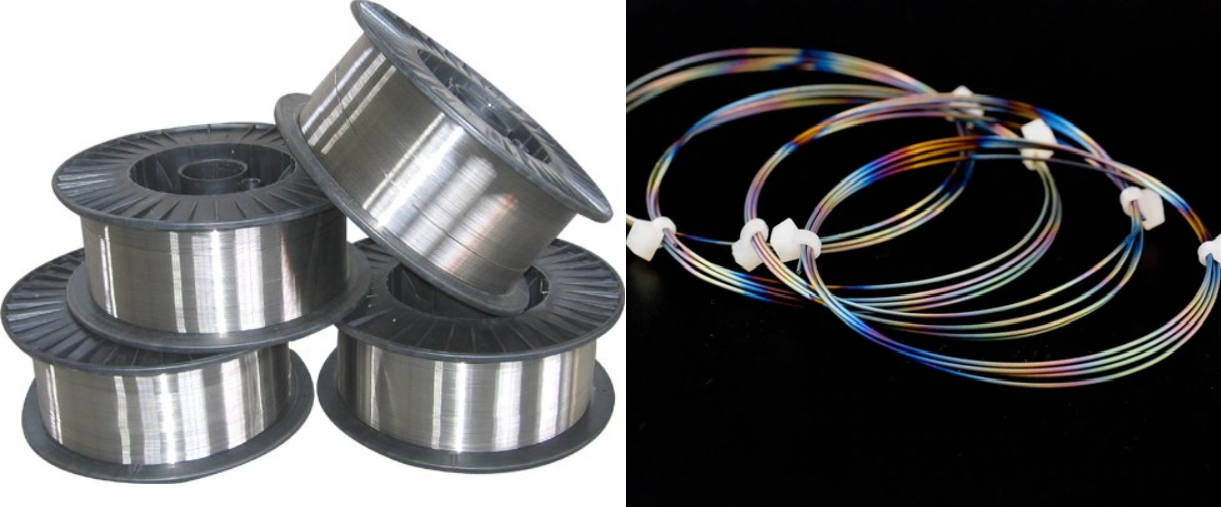Titanium wire, one of the most used metals in the world, is made out of three different types of titanium oxides, which are TiO2, Ti3Al2O5, and Ti4SiC6. The manufacturing process includes melting the material and heating it to a high temperature, then extruding it through a die or wire milling cutter at about 3200 degrees Fahrenheit for about one second. The result is pure titanium wire with a diameter between .008 and .010 inches that can withstand temperatures up to 900 degrees Celsius without any melting or cracking.
Ti-wire is strong because it has excellent ductility combined with elasticity and low shear strength at high temperatures. It also has a lightweight and durable metal factor that increases its usage in the aerospace industry and biomedical engineering for its superior mechanical properties.
However, titanium does not bend when you push it with your hands. This property makes the wire highly suitable for use in structural applications such as airplanes, cars, boats, and bridges. The wire can be easily machined, polished and its surface has a low friction coefficient which makes it ideal for welding.
The Many Uses of Titanium Wire
Titanium is a material that has many uses. It can be used to make cars lighter, airplanes, and even surgical implants. However, the most common use of titanium is in engineering as it is strong and very lightweight.
The wire is a popular choice for building frames and making suspension springs because it has a high strength-to-weight ratio.
Other uses can be categorized into two types: masonry, which refers to the use of titanium wire in building construction, and engineering, which refers to the use of titanium wire in aerospace engineering or other industrial sectors. Metals like platinum, cobalt, or nickel are also used with titanium to produce an alloy that meets the specific needs of a particular application or project.
Which Type of Titanium Wire Is Best for Your Application?
Titanium is a highly conductive metal that can easily be cut, bent, and welded. When it comes to power wire construction, titanium wire is the best option. It can also sustain high-temperature applications, including some types of welding. However, it is not suitable for general use due to its high cost and lower conductivity compared with other metals.
The type of titanium wire you should choose depends on the application you’ll be using it in your project. If you’re looking to make a gas stove or an oven with a titanium cooktop, then high-temperature resistant titanium wire will be the best choice for you.
Electrical grade titanium is also the best type of titanium wire to use when you need a low resistance to current but also want resistance from corrosion from saltwater or chemicals such as acids or alkalis.
How to Measure Titanium Wire Size?
A gauge measures titanium wire size, but you might have to wait in line at your local hardware store to get one. It is because these titanium wire size gauges are not made on the market as common tools, which makes it difficult for customers to measure their own wires easily.
Gauge is the diameter of a wire multiplied by its thickness. Because there are so many different grades of titanium, the gauge size should be at least as large as the next larger gauge. Titanium wire gauges are not standardized and can vary from manufacturer to manufacturer, so it’s important to get a gauge that will produce the desired results for your specific application.
There is no set standard for measuring ti wires because it depends on what you are using them for and how thick or thin you need them to be. Talk to the experts in the titanium industry today! Visit HeleTitanium Engineering and learn more, including the best prices for the different grades of titanium wire.
